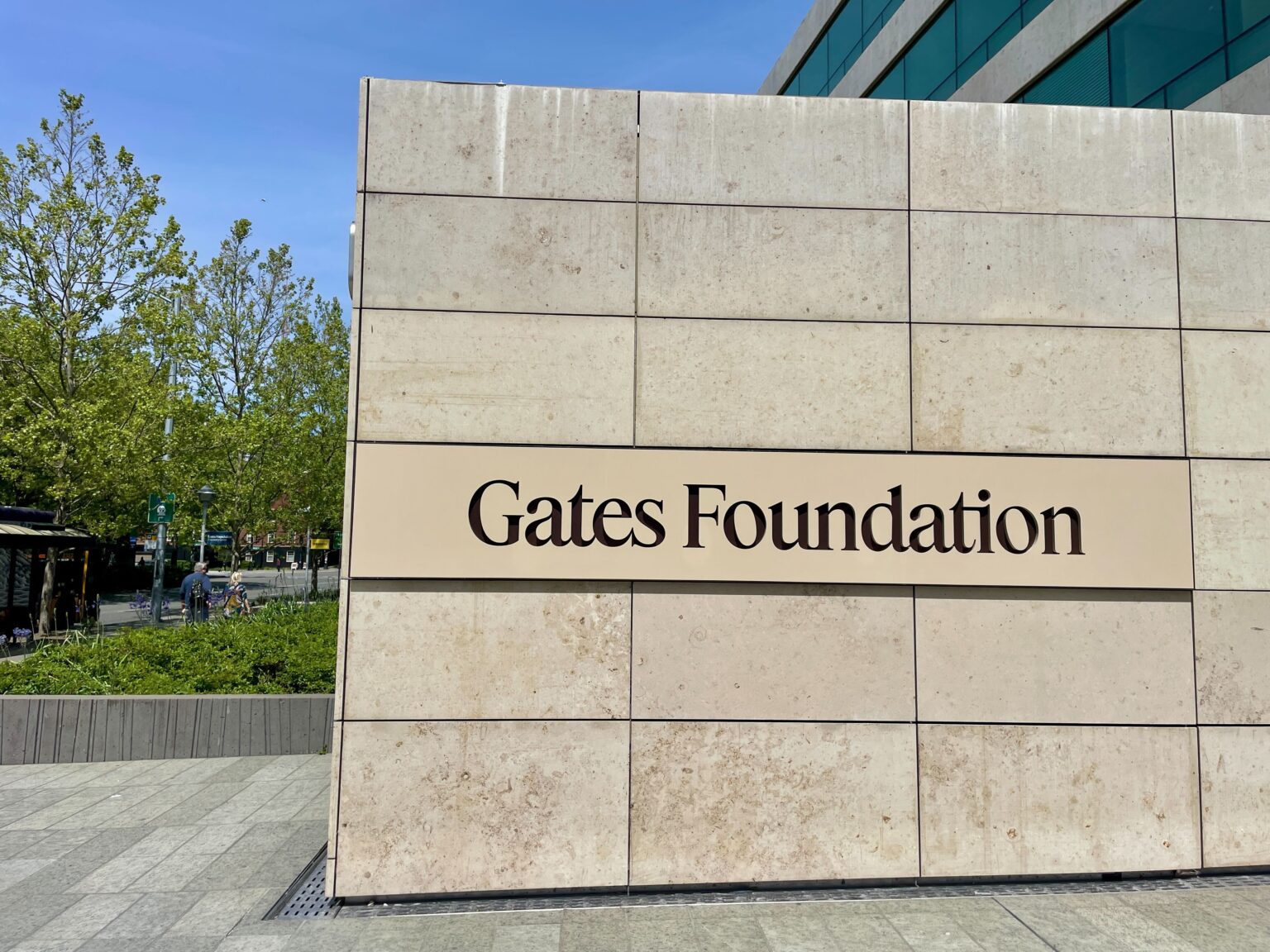Leadership inertia, failed intelligence, political considerations, abysmal coordination by state agencies, and so on, have played major roles in Nigeria’s emergence as a terrorists’ haven over the last decade and a half. ENO-ABASI SUNDAY reports that the obvious collapse of internal security has bequeathed to the country unsafe homes, classrooms, and places of worship; swaths of ungoverned spaces, and a bewildered populace. The failure of governance, thriving terrorism industry, and filthy lucre all intersect to foist misery on hapless citizens as government after government speaks beatitudes and offers endless assurances with little succour.
ON Monday, November 25, at about 6:05 p.m., about 20 armed men suspected to be herdsmen descended on the Isapa community in Ekiti Local Council of Kwara State alongside their herd and opened fire.
At the end of the melee, they abducted at least 10 residents of the community, including seven members of a single family, as well as Fatima Yusuf, a pregnant woman, and two nursing mothers- 23-year-old Lami Fidelis and Haja Na Allah, also in her 20s. Whether they would all return alive is a matter of conjecture.
Other abductees so far identified are 20-year-old Talatu Kabiru; Sarah Sunday, (22); Magaji, (6); Kande, (5); Hadiza, (10); Mariam, (6) and Saima, (5).
Adetoun Ejire-Adeyemi, the Kwara State Police Command’s spokesperson, in a statement, summarised the incident thus: “At about 1830hrs of the same date, the command received distress information on sporadic gunfire within the community. Swiftly responding, police operatives mobilised patrol vehicles and tactical teams to the scene.
“Preliminary findings revealed that at about 1805hrs, a group of armed men suspected to be herders invaded the village, shooting sporadically.
“As a result, a woman sustained a gunshot wound to her leg; she has since been treated and discharged. Further details from police operatives discovered that 10 persons were later abducted.”
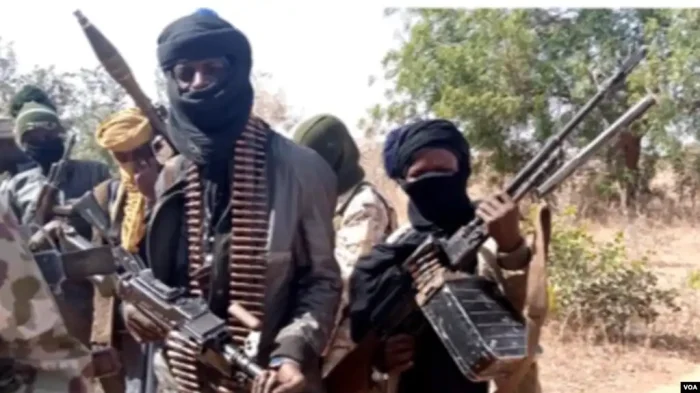
The Kwara incident took place just a week after gunmen attacked Christ Apostolic Church (CAC), at Oke Isegun in Eruku community, another town in Ekiti Local Council, which borders Kogi state, and 20 km from Isapa. The 38 workers who were abducted in that attack have since been rescued.
While the abductees still have a flicker of hope about regaining their freedom, a day before the 10 villagers were abducted in Kwara, another bewildering spectacle, this time tragic assailed Nigerians when fighters belonging to the Boko Haram faction loyal to Ali Ngulde reportedly beheaded two women in the Mandara Mountain axis of Gwoza Local Council of Borno State after accusing them of engaging in shirk.
Shirk, an Islamic term, refers to the sin of associating partners with Allah, or apportioning/attributing divine qualities to anyone or anything other than Allah.
Persons abreast of the modus operandi of insurgents in the area told counter-insurgency expert, Zagazola Makama, that the victims, who were caught with charms (layu), which they immediately interpreted as evidence of “forbidden practices, were dragged before the faction’s makeshift “trial” system, where the jihadist summarily declared them guilty, and they were executed afterwards.
Earlier in November, precisely in the early hours of Monday, November 17, 2025, gunmen stormed the Government Girls Comprehensive Secondary School in Maga, Kebbi State, and abducted 24 students.
A few days later, on Friday, November 21, attackers raided St. Mary’s Catholic Primary and Secondary School in the Papiri community of Niger State, abducting an estimated 303 schoolchildren and 12 teachers.
As thousands of innocent Nigerians continue to be either martyred, kidnapped, killed or maimed, the question on the lips of many is just how many more Nigerians would be kidnapped or killed before the Federal Government changes its approach to ending terrorism, religious extremism, banditry, and insurgency.
While hopes of Nigeria’s early exit from the league of world’s most terrorised nations appears forlorn, at least, for now given the number of servicemen and civilians killed, as well as the number of schoolchildren abducted in November alone, what is playing out in most parts of the North presently, is akin to scenes from the President Goodluck Ebele Jonathan’s era playbook where the administration for the most part appeared to be at its wits’ end.
Sadly, President Bola Ahmed Tinubu, after only 30 months in office, has already taken the medal for presiding over a country where the highest number of students, 303, were abducted by terrorists in one fell swoop.
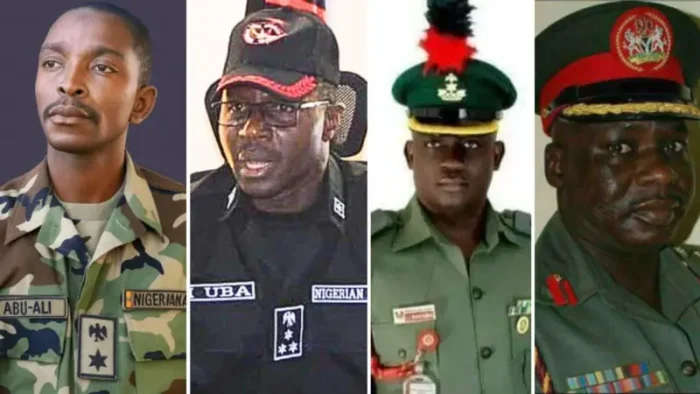
Genealogy of terror groups
SINCE announcing its presence in the country via its first series of attacks on police stations across the North in July 2009, culminating in a four-day standoff with security forces that led to the death of its first leader, Muhammed Yusuf, and hundreds of its members, the Jama’at Ahl al-Sunna li al-Da’wa wa al-Jihad better known as Boko Haram (Western education is forbidden) has ensured that its reprehensible activities have ricocheted severally across the country, especially in the North causing widespread grief and needless bloodletting.
According to the Vice President of Programmes and Disarmament, Demobilisation, and Reintegration (DDR) and Deradicalisation at the Bridgeway Foundation, Dr Audu Bulama Bukarti, over the years, “Boko Haram has grown into one of the most influential and dominant terrorist groups in the world. Though the group has gained notoriety for its violence and mass kidnappings in Nigeria’s North-East, Boko Haram is today a transnational threat that has sustained an insurgency despite both regional and international military counterterrorism efforts. Around the Lake Chad Basin, including in Niger, Cameroon and Chad, the militants of Boko Haram stage daily attacks and raids. This is further complicating efforts to manage other conflicts across the Sahel, creating a complex jihadist problem encasing either side of West Africa.”
In an article titled: “Violent Extremism in Sub-Saharan Africa: Lessons From the Rise of Boko Haram,” Bukarti added: “The threat from Boko Haram became more acute following its splintering into three distinct factions between 2012 and 2016,” and the subsequent years “proved the deadliest ever for security forces battling the group. While international actors have long been driven by the view that Boko Haram and its constituent factions would be weakened by the defeat of the Islamic State (ISIS), this has not come to pass, and efforts to defeat the group have fallen short. In fact, the ISIS-allied faction of Boko Haram became stronger after the territorial defeat of the Islamic State in Iraq and Syria in 2019.”
Boko Haram, an inherently homegrown group that emerged from the socioeconomic, political and religious milieu of North-East Nigeria, but whose influence can also be traced to the Middle East, where the global jihadist movement originated, has clandestinely evolved and splintered into different lethal groups.
Apart from Boko Haram, other terror groups that are wreaking havoc and destroying the lives and livelihoods of residents of northern Nigeria include Jama’atu Ansarul Muslimina Fi Biladis Sudan (Ansaru); the Islamic State in West African Province (ISWAP), as well as Yan Bindiga and Yan Ta’adda, which are some of the most significant terrorist groups in the North.
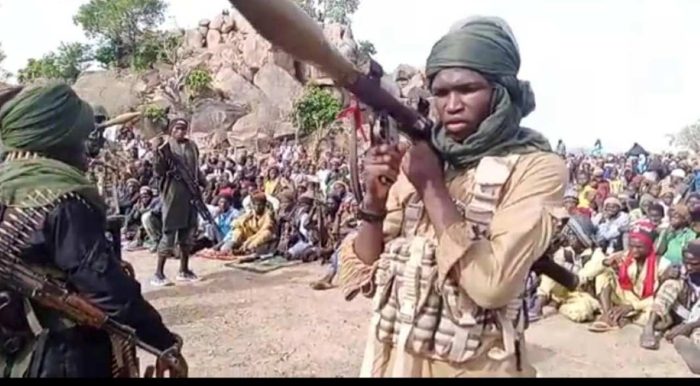
ISWAP is a splinter group of Boko Haram established in 2016 following the pronouncement of Abu Musab Al-Barnawi as the new Wali of the West African Province by ISIS. It later seized the Sambisa Forest from the Boko Haram faction as the area provides good cover and protection to its fighters from military airstrikes.
The group’s networks of supporters include external terrorist formations like Ansar Dine, AQIM, and a link with the Islamic State in the Greater Sahel (ISGS), an affiliate of ISIS.
According to the 2022 National Inherent Risk Assessment, in 2020, Yan Bindiga and Yan Ta’adda pledged their allegiance to the then-leader of Boko Haram, the late Abubabar Shekau.
Yan Bindiga and Yan Ta’adda are bandits who were declared terrorist groups on November 25, 2021, by the order of the Federal High Court Abuja. The groups’ activities began several years ago, stemming from the farmer-herder conflict in some North-West states, including Zamfara, Katsina, Kebbi, Kaduna, and Sokoto. The situation metamorphosed into criminal acts of cattle rustling, kidnapping for ransom and other forms of armed banditry around 2015.
The assessment also noted that the threat has spread beyond the North-West to some parts of the North Central and South-West states. The group also has a regional network and collaborative efforts with other groups, such as Islamic State in the Greater Sahara (ISGS); Jama’at Nasr al-Islam wal Muslimin (JNIM), and Al-Qaeda in the Islamic Maghreb (AQIM) (another splinter group from Boko Haram) in carrying out major attacks aimed at raising terrorist financing within the bandits’ areas of influence.
While Lakurawa, a new terrorist group affiliated with jihadist factions in Mali and Niger, which operates with similar ideology emerged this year in the North-West, down south, the Indigenous People of Biafra (IPOB), a secessionist movement based in the South-East and some parts of South-South Nigeria to restore the defunct Biafra nation, was proscribed by the Federal Government and declared as a terrorist organisation in September 2017.
IPOB was established in London in 2015 by Nnamdi Kanu, a dual citizen of Nigeria and Britain, who was recently sentenced to life imprisonment for terrorism charges.
At last Monday’s first plenary session on Peace, Security, Governance and Multilateralism, at the 7th African Union–European Union Summit in Luanda, Angola, Tinubu disclosed that early this year, over 250,000 Boko Haram-affiliated individuals had surrendered following the government’s kinetic and non-kinetic measures.
Despite this figure by the president, who was represented by his deputy, Kashim Shettima, a human rights organisation, the International Society for Civil Liberties and Rule of Law (Intersociety), in August, alleged that terror groups numbering over 22 were presently in the country, destroying and threatening the peace of the country.
In a report signed by its chairman, Emeka Umeagbalasi, it further alleged that the terror groups, which consist mainly of foreign Islamic bandits, were presently using Nigeria as their haven, and seem to be working to obliterate an estimated 112 million Christians and 13 million traditional religionists across the country, particularly in the South-East, South-South, and North-Central in the years to come.
“The groups in a bid to achieve their objectives have so far massacred 7,087 Christians and abducted 7,800 in 220 days of 2025, mostly in the South-East and South-South. They have also killed thousands of liberal Muslims in parts of the North. They have killed 185,009 defenceless Nigerians.”
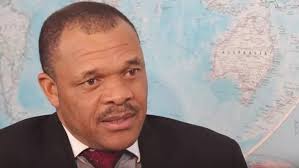
Governance failure turning Nigeria into haven for extremists, terrorists
BOTH the Senior Adviser on Nigeria at International Crisis Group, Nnamdi Obasi, and the Regional Organised Crime Observatory Coordinator – Central Africa, Enhancing Africa’s Response to Transnational Organised Crime (ENACT), at the Institute for Security Studies, Dakar, Senegal, Dr Oluwole Ojewale, are united in their submissions that failure of governance is turning country into a playground for extremists, terrorists and sundry characters.
“Poor governance at all levels – federal, state and local has contributed greatly to turning the country into a playground for numerous criminals… The failure to alleviate mass poverty and curb unemployment has created a large pool of young people who have no livelihood and no hope, and have thus become highly vulnerable to recruitment into diverse armed groups. The persistent failure to secure the country’s borders continually enables the massive influx of illicit arms that are empowering non-state armed groups.
“Also, the failure to apprehend and sanction perpetrators of atrocities has created a terrible atmosphere of impunity that enables armed groups to act with greater audacity. The continuing corruption at various levels of government hinders the development of infrastructure and the provision of social amenities that millions of citizens need to live their lives with basic human dignity. Many other failures of governance have created millions of citizens who are now largely alienated, not only from the government but indeed from the Nigerian state, and increasingly susceptible to extremist persuasions,” Obasi stated.
For Ojewale: “There are vagaries of factors that facilitate the proliferation of terrorist groups in the country, but the dominant ones revolve around existing subterranean disposition of many Nigerians to religious fundamentalism (violent extremism feeds on this), state failure, border porosity and transnational linkages to wider events unfolding in the Sahelian states. All these factors provide the building blocks for the house of terror that has been built through sleeper cells across pockets of places in Nigeria. Arms flow freely into the country, and cultural connections across the borders provide easy passage for criminal actors to cross into Nigeria.”
Ojewale lamented that with the military actively deployed in many states, it is overstretched because “the police and NSCDC that have the primary mandate for internal security are not living up to the public expectation of their mandate. This is becoming extremely concerning, particularly for the Nigerian Police Force, which is grossly underfunded and its officers poorly trained to combat internal security crises. We have resorted to gross abuse of the military by deploying them for routine internal security operations such as kidnapping, and thereby carrying out what has been described as ‘policenisation of the military’.”
Amnesties, incentives to terrorists, criminal groups counterproductive
AS far as Ojewale is concerned, state governments offering criminal groups amnesties and incentives to end violent attacks is an unwelcome idea as “the strategy is bound to fail… Negotiating with organised criminal gangs and bandits, who carry out mass attacks in North Central and North-West, is flawed, as sub-national governments constitutionally lack control over the military and police. That means they engage armed groups from a position of weakness – further highlighting the erosion of state authority.
For a former chairman of the Nigerian Bar Association (NBA), Abuja Chapter, Bulus Atsen, “The idea of government presupposes that citizens have surrendered their right to secure themselves to a few in exchange for protection and development. That is why Section 14 (2) (b) of the 1999 Constitution provides that the welfare and security of Nigerians is the fundamental purpose of government. However, state governments are toothless bulldogs as far as addressing insecurity in their states is concerned. We all recall how some former governors resigned their position as chief security officers of their states due to their incapacity to control the security apparatus in a way and manner that will engender security. This brings to the fore the issue of state police, about which some commentators have expressed their scepticism about governors’ maturity to manage security agencies without using them as political weapons against the opposition.
“By and large, negotiating peace deals with bandits and terrorists is a gross democratic betrayal against the citizens who are left with no option but to negotiate in an uneven condition. Negotiating with gun-wielding madmen cannot, by any stretch of imagination, be accurately described as negotiation. The communities which negotiated with bandits and terrorists are effectively captured territories. This accords them the opportunity to harness resources to fund terrorism and banditry, thereby expanding their evil mechanisation against law-abiding Nigerian citizens.
“We continue to look forward to a time when the government will have a deep sense of national shame and deal decisively and conclusively with all the madness going on as insecurity. It is certainly not beyond the Nigerian government.”
The National Coordinator of Human Rights Writers Association of Nigeria (HURIWA), Emmanuel Onwubiko, equally believes that “granting amnesties to terrorists or what the government calls reintegration and rehabilitation of repentant terrorists is the greatest crime against humanity because this policy is anchored on injustice and illegality. Nigeria is a nation that is governed by law, and so, if the government disobeys the laws, particularly the Counter Terrorism Act of the federation, to negotiate and grant amnesty to terrorists, then this leads to escalation because terrorists do not repent, and they deserve to face the full weight of the law. Why should the government use taxpayers’ money for the rehabilitation of mass killers and terrorists, and then neglect the key aspect of granting justice to the victims of terrorism? This is unconstitutional and reprehensible.”
Nigerians, others unconvinced with government’s efforts to end killing spree. OF late, President Tinubu has expressed concern about the escalating security situation and restated his commitment to eliminating terrorists and bandits in the country. He insists that insecurity remains the most troubling challenge facing the country, especially the North.
Represented by the Speaker of the House of Representatives, Dr Tajudeen Abbas, at the 25th anniversary of the Arewa Consultative Forum (ACF) and the launch of its Endowment Fund, Tinubu promised to tackle insecurity decisively to prevent further economic decline and educational setbacks.
Also, on behalf of the government, the President of the Senate, Godswill Akpabio, formally unveiled Nigeria’s Counter-Terrorism Strategic Plan 2025 -2030 last Monday. This plan was developed by the National Counter-Terrorism Centre in the Office of the National Security Adviser.
Insisting that the government was poised to translate intent into action with the Counter Terrorism Strategic Plan 2025 – 2030, he added: “It is a moment when Nigeria again reaffirms that our people deserve to live without fear, that our children deserve a future of peace, and that our nation must be secured to prosper,” he said.
All these notwithstanding, the United States President, Mr Donald Trump, has, in recent times, emerged as the Nigerian government’s most vocal critic as far as the fight against terrorism is concerned.
Since branding Nigeria as a “Country of Particular Concern,” Trump has gone ahead to pour invectives on the country’s political leadership for superintending a Christian genocide, an allegation that the President Tinubu-led government has vehemently denied.
“I think Nigeria is a disgrace. The whole thing is a disgrace. They’re killing people by the thousands. It’s a genocide. And I’m furious about it. And we pay, you know, we give a lot of subsidies to Nigeria, which we’re going to end up stopping. The government’s done nothing. They are very ineffective. They’re killing Christians at will. And you know, until I got involved in it two weeks ago, nobody even talked about it,” Trump, who accused Islamists of mass slaughter of Christians, stated during a radio programme.
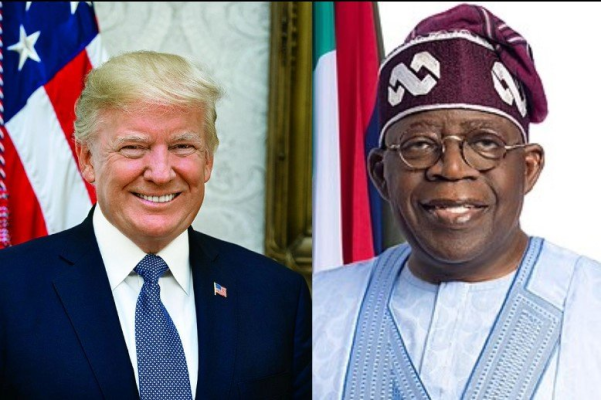
On the international plane, Trump is not alone in calling for accountability from Nigerian leaders. The Italian Prime Minister Giorgia Meloni, in a recent statement posted on X, condemned the latest outbreak of violence, describing the attacks as heinous and unacceptable.
“We strongly condemn the renewed violence that took place today against Christian communities in Nigeria,” she wrote, adding: “Religious freedom is an inviolable right: we ask the Nigerian government to strengthen the protection of Christian communities and all religious communities and to prosecute those responsible for these heinous attacks.”
Atsen, on his part, says Nigerians have every reason to feel hard done by, given the dire conditions that they have found themselves in.
Said he: “There have been concerted efforts by the government over the years to address terror attacks and stem the proliferation of terror groups. However, it appears that there is a proportionate rise in terror attacks to an increase in security investments and actions. This suggests that there is a disconnect between government efforts and security outcomes. That would explain why the government expects and often claims that its intervention has brought about the needed security, but the lived experiences of most Nigerians, who are grappling with attacks, rape, kidnapping and the payment of ransom, indicate otherwise. This disparity casts doubts on the public’s conviction of the government’s sincerity of purpose in combating terrorism in Nigeria.”
Obasi, the International Crisis Group chief, maintains that it’s quite understandable that most Nigerians increasingly doubt the Federal Government’s claims of working to end the mass killings and abductions because these atrocities have gone on for far too long, done incredible harm to so many citizens, with no decisive response from the government and seemingly with no end in sight. The government’s response has been deficient in terms of both the will and transparency of political leaders and the operational capacity of security forces.
“First, over the years, the government has repeatedly vowed to vanquish the armed groups, but it has hardly demonstrated the will to translate those declarations into reality. It has issued countless threats, warnings and ultimatums to armed groups, but they all just fizzled out, while the mass killings and abductions continued.
“Secondly, successive governments haven’t been transparent about the country’s security challenges, and they haven’t been honest about progress in addressing them. For instance, shortly after Buhari became president in 2015, he notoriously declared that Boko Haram had been “technically defeated”. That claim has turned out to be false over the last 10 years. Government spokesmen have made numerous other claims, of being ‘on top of the situation’ and of making ‘tremendous progress’ in stemming insecurity, when they knew that those claims were simply false. This long-running engagement in self-delusion and public deception hasn’t ended the killings and other atrocities.
“Thirdly, the government hasn’t shown the much-needed urgency in boosting the capacities of security forces and ensuring they are really able to protect citizens. For years, the security forces have been seriously under-manned, under-resourced and over-stretched. Many Nigerians will remain unconvinced about any claims of fighting insecurity until they see the government deploying more human and material resources, visibly dismantling the criminal and extremist groups, and bringing their leaders and members to justice. Actions will always be more eloquent and more convincing than words.”
Onwubiko, a former national commissioner of the National Human Rights Commission of Nigeria, strongly believes that it is the lack of political will by the president to wage a relentless war on terror that is responsible for the escalation of violence and mass murders of Nigerians. The president is yet to prosecute terrorist funders transparently because there is suspicion that, due to his ambition to return in 2027 for a second term, he has made his administration compromise with these political forces who are the sponsors of terrorism in Nigeria.



